The «Prisoners of the Wartime» report is dedicated to covering criminal cases connected to Russia’s full-scale invasion of Ukraine. We monitor prosecution of people charged with arson, sabotage, military assistance to Ukraine, refusal to fight and other actions. It is not always clear whether the defendants had actually committed what they were charged with, nor do we know what defendants stand for; however, we try to provide a comprehensive picture of political repressions happening in Russia.
Warning: The text includes images of dead bodies
The data in this publication are current as of early November. OVD-Info summarises more complete results in the chapter on wartime prisoners in the annual report.
Since the beginning of November there have been more deaths as a result of political persecution — for example, anarchist Roman Shvedov was found dead in the pre-trial detention centre on 18 December. He had reportedly committed suicide after being sentenced to 16 years in prison in a case of arson against the district administration. The courts continued to impose huge sentences — for example, Sergei Andreev was sentenced to 24 years' imprisonment for attempting to set fire to a military recruitment centre using gunpowder and fireworks.
Prisoners of Wartime: Minors
Statistics
In September, Novaya Gazeta Europe estimated that since the beginning of 2024, 93 minors have been added to the list of «terrorists and extremists» of Rosfinmonitoring. Twenty of these minors are younger than 16 years old. In total, there are 115 minors in the list as of November 6.
Mediazona recently pointed out that two of the newest additions to the database were boys born in 2010. Both 14 years old, they are the youngest in the list so far. Under some articles of the Russia Criminal code, criminal liability begins specifically at this age. Mediazona also found that 23 minors were convicted for terrorism, sabotage, disruption of transport, treason and justification of terrorism, in the first half of 2024. This is almost a threefold increase compared to the same period in 2023, and is more than in 2023 as a whole. .
Teenagers Involved in Cases of Arson
people arrested on charges of arson in 2024 are minors
In particular, number of teenagers charged with arson/attempted arson:
In total, 134 people, of which 50 were minors, were arrested in arson cases connected to Russia’s war against Ukraine — since the beginning of 2024.
Most of the detainees are charged with arson or with preparation for arson on the railway. Among detainees involved in such cases, the proportion of teenagers is even higher — 37 out of 81 people, i.e., almost every second person. According to Mediazona’s data, about a third of those detained on charges of arson on the railway were minors as of April 2023.
The second most popular type of infrastructure targeted by both adult and underaged arsonists were cellular base stations (at least 29 people, including 12 minors, were detained on charges of setting fire to communication facilities) and military aircraft and helicopters (at least 10 minors out of 16 known people involved). By the way, in two cases in Omsk and Noyabrsk, teenagers were reported to have actually succeeded in burning down Mi-8 helicopters. Two schoolboys (both 16 years old) were charged in Omsk. Both were taken into custody. In Noyabrsk, security forces even charged boys aged 13 and 14 in the arson. According to the security forces, the boys entered the helipad through a hole in the fence, spilled flammable liquid and ignited it with a cigarette, though they themselves also received facial burns and were taken to the hospital.
![[machine translation]](/sites/default/files/styles/material_width_695/public/translated_image_en.png?itok=j69h5Iks)
In turn, there are no minors among those known to have been incarcerated on charges of arson of military recruitment offices in 2024. Recently, almost all of those who set fire to the military registration and recruitment offices acted under the influence of scammers and, in most instances, were older.
people sentenced for arson in 2024 were minors (or they were minors at the moment of the act of committing arson).
*Аs of November 6, 2024
At least 107 people were convicted for arson relating to ongoing full-scale invasion of Ukraine by Russia in 2024, of which 18 are minors or were minors at the time the actions they are charged with were supposedly committed.
Underaged defendants in cases of arson (almost all of them on the railway) were awarded punishment terms ranging from 4 to 8 years of imprisonment. The most severe sentences — 8 years of imprisonment in a colony — were imposed on two young people:
a 17-year-old defendant in a case of sabotage on a railway in Bashkortostan. Presumably, his name is Alexey Krioni: a teenager from Ufa born in 2007 with the same name was included in the Rosfinmonitoring list at the same time as three other defendants in the same case;
- Kirill Shekhter, the youngest of 13 defendants in a major case of attacks on railway infrastructure in the Krasnoyarsk region and Moscow.
Adults convicted in cases of railroad arson are usually sentenced to more than 10 years of imprisonment and typically serve some of their term in a «closed» prison.
In about one quarter of the cases, nothing is known about the motives of the minors who committed arson; however, what is known about almost all remaining cases is that defendants were ‘curated’ and instigated by anonymous organisers for monetary reward (where the reward was often promised but never paid out). A similar situation was observed amongst adult defendants in cases of arson, especially on the railroad. For example, some of those involved in the above-mentioned case of «13 saboteurs» were discovered by handler through «Black Money Schemes» group on Telegram. A person involved in the situation told OVD-Info that the defendants in this case hold different views on the Russian-Ukrainian war.
In one instance, a Telegram channel linked to the security forces published a video where a young man says that he became interested in the activities of the Russian Volunteer Corps, contacted their chatbot, and, as an assignment, was instructed to set fire to an electrical substation. Another young man, Bogdan Davydenko from Vladivostok, admitted in court that he had planned to set fire to a military recruitment office in 2023 to protest against the war. He was 17 years old at the time of his arrest.
Growing Up behind Bars
Egor Balazeikin
The most notorious student-arsonist, Egor Balazeikin, spent 2024 coming of age in prison: he turned 18 on August 6. In April, he was sentenced to six years of imprisonment for trying to set fire to two military recruitment offices, and in July the young man was sent to the Arkhangelsk educational colony. Balazeikin faced psychological pressure and was tortured during the convoy.
![[machine translation]](/sites/default/files/styles/material_width_695/public/translated_image_en%20%281%29.png?itok=sRQu2epA)
In September, the court ordered to transfer him — by that time already an adult — to a general regime colony. «The only pleasant part of his life now is school, » Balazeikin’s parents say. «The teachers are very literate and <…> humane. They are concerned that Egor will leave for a corrective colony and constantly ask if something can be done to allow him to stay.» Nevertheless, at the end of October, Egor was transferred to the Corrective Colony No. 5 in St. Petersburg.
Balazeikin suffers from autoimmune hepatitis, and his health has further deteriorated in jail. In January, a medical commission refused to assign him a disability officially, despite the fact that by that time his liver fibrosis had already progressed. According to doctors, the system considers it sensible to grant the disability status only if 20% of the body sustains a persistent dysfunction, and Egor’s was lower. However, the young man requires special diet, treatment and regular examinations — all that can be accessed in prison conditions with great difficulty. According to his support group, his last examination at the hospital was carried out just «for show».
In the winter of 2023, Egor Balazeikin threw several molotov cocktails at the military recruitment offices of St. Petersburg and the Leningrad region; no fire broke out. His actions were classified as an attempted terrorist attack. «I believe that if people express their discontent en masse, not necessarily in the same way as I did, then this will lead to the end of the war and will save human lives, » he said in court.
Gagik Grigoryan
Sometimes minors are charged with more serious crimes than arson. For instance, the left-wing activist Gagik Grigoryan, who was 17 years old at the time of his arrest, has been in custody for about a year. Only eight months after his detention, the Left Socialist Action and the Solidarity Zone managed to find him in Moscow’s Pre-Trial Detention Centre No. 5 «Vodnik». In a letter, Gagik informed that he was «charged with preparing the liquidation of a lieutenant colonel of the Russian army».

At the moment, there is no information about how the investigation supports the charges against Grigoryan. Such deliberate, systematic isolation from like-minded people and the lack of information about the case in the media may indirectly suggest that serious pressure was exerted on Gagik. «Knowing Gagik well, we do not believe such charges have any validity. It is obvious to us that this is either fiction or some kind of provocation by law enforcement agencies, » the Left Socialist Action wrote.
Teenagers and Military organisations
Nothing is known about criminal cases where teenagers were charged with trying to join the Ukrainian army directly, or donating to it — which makes sense, since minors rarely have their own money; moreover, they would not be permitted to participate in military activities. However, there are other forms of assistance to military units that a teenager can be charged with. Here are some examples.
- Arseny Turbin from the Oryol region was sentenced to five years in an educational colony. According to the prosecution, in June 2023, the 14-year-old Turbin messaged the bot of the Freedom of Russia Legion and filled out a membership application form.Later, allegedly carrying out the legion’s task, he spread leaflets in the mailboxes of neighbours with the slogan s «Do you need a president like this?». The FSB (the Federal Security Service) claimed that the student shared the story about the bot and the questionnaire he had filled out during his first interrogation. However, t in reality he told FSB thee exact opposite, saying that he had ended up not sending it. Now Turbin is 16 years old and is detained in Mosocw’s «Butyrka» Pre-Trial Detention Centre. Recently, he told his mother that he was being beaten by a cellmate. After the story went public, the aggressor was moved away; however, this was not the only case of pressure on the teenager in the isolation ward.
- In the Khabarovsk region, 15-year-old Valery Zaitsev was sentenced to 4.5 years in an educational colony. He was found guilty of participating in the Azov battalion and undergoing training in terrorist activities. The case files contain a video of teenagers throwing Molotov cocktails at the wall of an abandoned building. Zaitsev’s grandmother suggests that the video was shot by a provocateur who acted as a secret witness at the trial. In 2023, the boy, who was still 14 years old at the time, was taken from the dispensary where he was being treated for tuberculosis and placed in a pre-trial detention centre. He finished his ninth grade already in the isolation ward.
- In Stavropol Krai, a 16-year-old ninth-grader was charged with incitement of terrorism for allegedly distributing leaflets about the war in Ukraine and for the Freedom of Russia Legion, according to the investigation. Initially charged with calls for terrorism, the charges were later reclassified to incitement of terrorist activity — an offence punishable with up to 15 years of imprisonment. The authorities claim that the teenager had persuaded a 19-year-old friend to join him in putting up the leaflets. The boy is currently under house arrest.
- In Bryansk, a 15-year-old ninth-grader was taken into custody on charges of involvement with the Freedom of Russia Legion. According to the authorities, the group’s organisers tasked him with «photographing bus stops in a city district, the local square and a government building».
- In the Kemerovo region, a minor was also arrested on charges of participating in the Freedom of Russia Legion. The investigation alleges that he was tasked with gathering and transmitting information about strategically important industrial facilities in the area.
- Dmitry Sanin, a resident of the Belgorod region, was sentenced to eight years in a general-regime penal colony for alleged collaboration with the Freedom of Russia Legion. On appeal, his sentence was reduced to seven years, as reported by Mediazona. Prosecutors claim that in June 2023, Sanin attempted to travel to Ukraine, sending his handler «screenshots of his route, as well as audio and video messages detailing the movement and location of military equipment». Although Sanin is now 19, he committed alleged offences when he was 17, according to law enforcement officers.
Among those charged with attempting to join the Armed Forces of Ukraine (AFU) are individuals who had only just turned 18 at the time of their detention. Vladislav Sosedko from Moscow allegedly applied to join the Freedom of Russia Legion and the Russian Volunteer Corps when he was still a minor. He was detained only a few weeks after his 18th birthday. A similar case involved Vadim Tomilov, a sambo wrestler from the Sverdlovsk region, who was taken into custody on charges of attempting to join the AFU shortly after turning 18.
In another instance, the Astrakhan Regional Prosecutor’s Office referred to court the case of an 18-year-old student from Volgograd. According to law enforcement, he had been a member of the Freedom of Russia Legion since 2023 and provided Ukrainian intelligence with information on local military facilities. His name and exact date of birth have not been disclosed, but it is suggested that his alleged collaboration with the Ukrainian army may have begun when he was 17.
An 18-year-old eleventh-grader from Omsk was taken to a pre-trial detention centre on charges of treason. FSB claims he allegedly acted as an administrator for Ukrainian terrorist Telegram channels, publicly called for terrorist attacks against Russian patriots, and raised funds for the AFU.
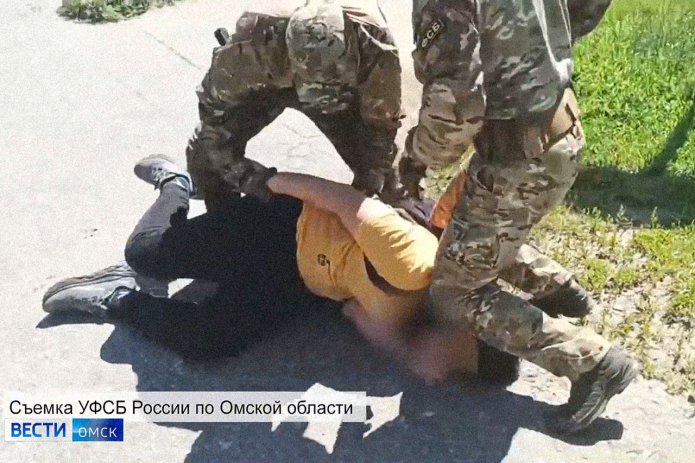
Among the Ukrainian prisoners of war facing prosecution simply for their military service is Vladyslav Plakhotnik, who was just 18 years old at the time of his capture and sentencing. He was charged with membership in the Azov Brigade and undergoing military training, which was classified as «training in terrorist activities». Plakhotnik was subsequently sentenced to 18 years of imprisonment.
A Story with a Happy Ending
Kevin Lik, a high school student convicted of treason, was released as part of a prisoner swap.

In December 2023, the young man was sentenced to four years of imprisonment on charges of photographing a military unit in Maikop and sending the images to the email address of a «representative of a foreign power». Although he is now 19, the alleged offences were committed when he was under 18. At the time the investigation began, he was a tenth-grade student.
Twenty Years and More — The Harshest Sentences in War-Related Cases
In April, Ivan Nedilsky, a 53-year-old dual citizen of Ukraine and Russia, was sentenced to 26 years of imprisonment. He is to serve the first eight years in a prison, followed by 18 years in a high-security penal colony.
The man was convicted on multiple charges, including treason, vandalism, participation in a terrorist organisation, carrying out a terrorist act as part of a group resulting in significant property damage, and attempting to commit a similar act.

News of Nedilsky’s arrest broke in September 2023. Media reports indicated that he was suspected of carrying out two arson attacks on military recruitment offices in the Moscow region.
In July 2022, an unidentified individual threw two vodka bottles filled with flammable liquid at the military recruitment office in Mozhaisk, although fire failed to ignite. Two months later, a Molotov cocktail was thrown at the cadastral service building in the village of Shakhovskaya, a site previously used as a military recruitment office. It is believed that Nedilsky was charged with carrying out these arson attacks.
In March, Ukrainian citizen Serhii Karmazin was sentenced to 25 years of imprisonment. He is to serve the first six years in a prison, followed by the remainder of his sentence in a high-security penal colony. According to law enforcement authorities, he set fire to two automated relay boxes on a railway in the Moscow region.

Karmazin was detained in March 2023. Initially, he was charged only with sabotage. Over the course of a year, several more charges were added: espionage, training in sabotage activities, preparation for the manufacture of explosives, participation in a sabotage group, participation in a terrorist organisation, preparation for a terrorist act and training in terrorist activities. During all this time, he was denied access to a lawyer.
In May, the 36-year-old bartender Vladimir Malina from the Moscow region was sentenced to 25 years for setting fire to a relay box. He will serve the first five years in a prison, followed by 20 years in a high-security penal colony. He was also ordered to pay 9,700 rubles (US$97) in compensation to Russian Railways.
The man was charged with ten offences at once: sabotage, attempted sabotage, preparation for sabotage, preparation for a terrorist act, training in terrorist activities, participation in a terrorist group, participation in a terrorist organisation, treason, training in sabotage, and participation in a sabotage group.

The case against Malina was initiated following the arson of a relay box at a railway crossing near Naro-Fominsk in April 2023. During his arrest, he was beaten by an FSB officer, and upon being taken to a temporary detention facility, multiple bruises were documented on his body.
Baza (a Russian-language outlet) reported that after his arrest, the man stated during a «conversation» with investigators that he had acted on his own initiative. A source in the Ministry of Internal Affairs cited by the publication «Vot Tak» claimed that the case against Malina had been initiated for his alleged participation in the Freedom of Russia Legion, which is designated as a terrorist organisation in Russia.
Also in May, the Novosibirsk resident Ilya Baburin was sentenced to 25 years of imprisonment for attempting to set fire to a military recruitment office. He is to serve the first five years in a prison, with the remainder of his term in a high-security penal colony.
Initially, Baburin was charged with attempting to organise a terrorist act. Under pressure, he agreed to a plea deal with investigators but later withdrew his testimony.

During the investigation, the young man was charged with treason, allegedly for organising an arson to support Azov. The investigators later claimed that he himself was a member of Azov and added charges of participating in a terrorist organisation and an illegal armed group to the case.
In 2023, Baburin was charged with the arson of a music school, which he categorically denies, as well as illegal possession of technical equipment due to a GPS beacon found during a search. The court denied the defence’s request for an independent examination that could have proven the defendant did not film the arson of the music school on his phone.
In September, the court handed down a verdict against residents of the Sverdlovsk Oblast in the case of arson on the railway. Grigory Istomin was sentenced to 23 years of imprisonment, while Ivan Simonov received 22 years. Both men will serve the first seven years in a prison, with the remainder of their sentences in a high-security penal colony.
Istomin and Simonov were found guilty of terrorism and attempting to commit a terrorist act. According to the investigation, the men opposed Russia’s invasion of Ukraine and allegedly set fire to a relay box in exchange for a monetary reward, with plans to do so again.
In early October, 13 young men were sentenced in connection with attacks on railway infrastructure in the Krasnoyarsk region.
The longest sentence was handed to 20-year-old Yegor Kusonets, who was sentenced to 23 years of imprisonment. 21-year-old Vladislav Turtugeshev was sentenced to 21 years. 20-year-old Artem Begoyan, who was sentenced in April to 15 years of imprisonment for setting fire to relay boxes in Mordovia, received a total of 20 years. They will serve part of their sentences in a prison.
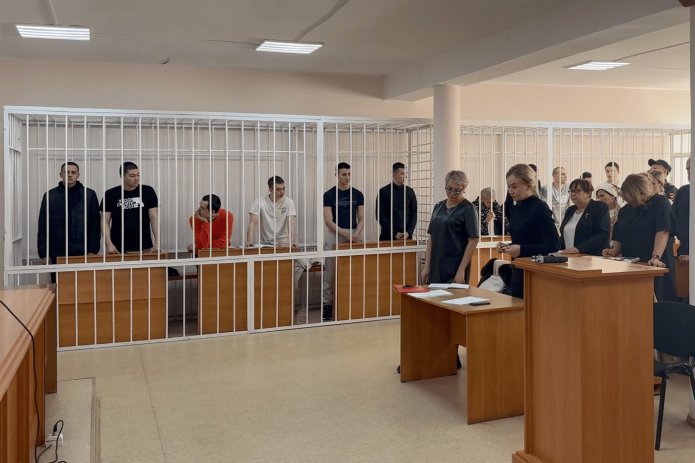
The other defendants in the case were sentenced to prison terms ranging from 4 to 19 years.
According to the indictment cited by Mediazona, the organiser of the attacks was a man known to the defendants as Artur. The law enforcement alleges that Artur opposed the Russian invasion of Ukraine and, «out of hostility towards the Russian Federation», decided to form a group to carry out acts of sabotage. In December 2022 and January 2023, he created an «organised group», which the defendants joined «under various circumstances».
A 48-year-old resident of Crimea, Dmitry Papenko, was sentenced to 21 years of imprisonment. He was found guilty in a case of treason (Article 275 of the Criminal Code), preparation for arson (Part 1 of Article 205 of the Criminal Code with the application of Part 1 of Article 30 of the Criminal Code) and undergoing terrorism training (Article 205.3 of the Criminal Code).
According to the FSB, Papenko was passing information about military facilities in Sevastopol, the largest city in Crimea, to the Security Service of Ukraine and planned to set fire to an administrative building.
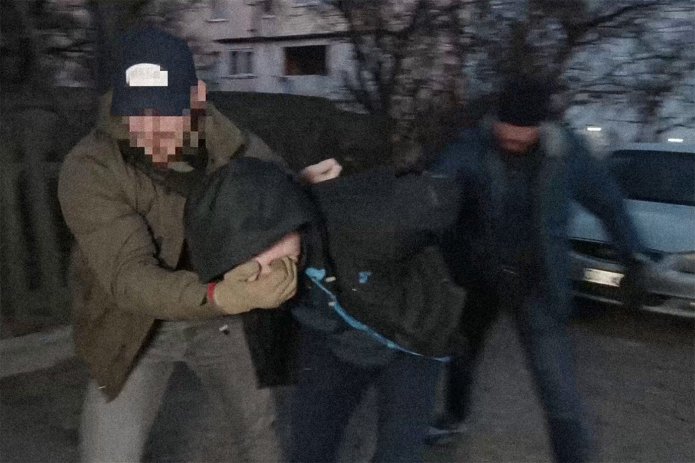
Dmitry Papenko was arrested in December 2022, and in October 2023, his case was brought to court. While the exact date of the verdict is unclear, the Federal Security Service chose to announce it on the defendant’s birthday, as reported by Mediazona.
Vasily Votanovsky was also sentenced to 21 years of imprisonment on charges of planning an explosion at the city hall in Rubtsovsk in the Altai region. He will serve the first four years in a prison, followed by the remainder of his term in a strict regime penal colony. In addition, he was fined 300 thousand rubles (US$3,045) and punished with two years of restricted freedom.
According to the investigation, in September 2022, Votanovsky went to Kyrgyzstan where he began communicating with representatives of the Freedom of Russia Legion. His «handler» sent him materials on how to make a homemade bomb and methods of concealment. The defendant studied them and sent a video of himself «pledging allegiance» to the legion’s representative.
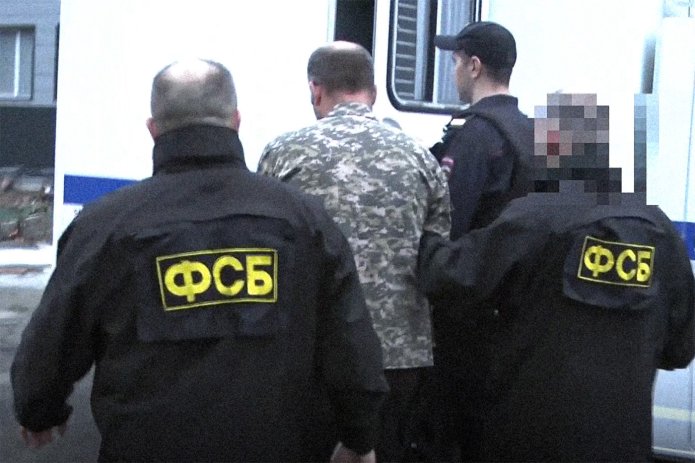
Afterwards, Votanovsky went to Rubtsovsk, where he gathered information on infrastructure sites and sent it to his «handler». He was also tasked with bombing the city administration building. The suspect prepared an explosive, but was apprehended by Federal Security Service officers.
The art teacher Daniil Klyuka from the Lipetsk region was sentenced to 20 years in a penal colony on charges of treason and aiding terrorist activities after transferring money to his brother from Luhansk, a city in the Donbas region.
The FSB claims that the young man allegedly transferred 135 thousand rubles (US$1,370) to the cryptocurrency wallet of the Azov Brigade. According to the investigation, this money was used to purchase weapons, kamikaze drones, military equipment, radios, uniforms, ammunition, and other gear, law enforcement officials believe.

In his letter, Klyuka explained that he drew pictures on the pages of a local propaganda newspaper «for fun or under the influence of emotions». One day, he forgot the newspaper with the drawing on his desk. After that, he was fired from his teaching job, and the school director reported him to the FSB.
In July, the 19-year-old college student Igor Lushko was sentenced to 20 years of imprisonment. He will serve the first five years in a prison and the remainder of his term in a strict regime penal colony.
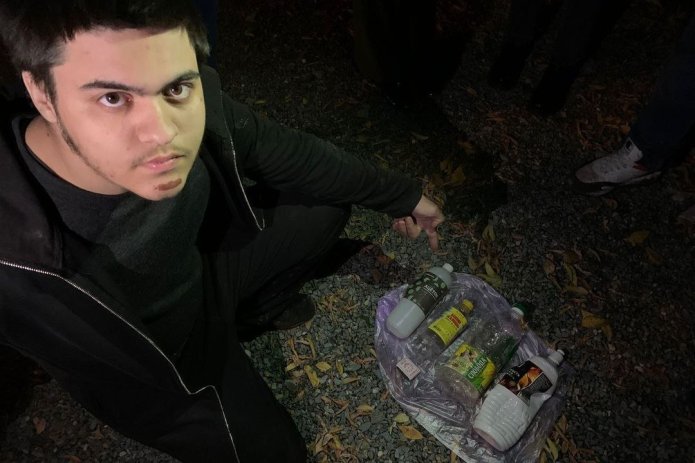
According to law enforcement officers, Lushko, «harbouring negative feelings about the special military operation», filled out an application form to join the Freedom of Russia Legion. In September 2023, he allegedly set fire to an electrical substation on his handler’s orders. Additionally, he supposedly recorded a video of a military base and military equipment.
Lushko was charged with participating in a terrorist organisation, sabotage, preparation for sabotage and treason.
In May, Nikita Klyunya from Karelia, a 20-year-old member of the public movement «Civil Alliance of Russia», was sentenced to 14 years of imprisonment on charges of aiding terrorist activities and treason.
In August, a court of appeals found the sentence insufficient and increased the term to 19.5 years. The young man is required to serve the first three years in prison.

Klyunya was found guilty under the articles on treason, cooperating with a foreign power on a confidential basis and publicly inciting or justifying terrorism. According to the investigation, he was involved in sabotage on a railway.
Klyunya was detained on 8 March 2023 in Sortavala, a town in the Republic of Karelia, and has been held in pre-trial detention since then.
Sentences in 2024 on cases related to the Russian invasion of Ukraine
From January to October of 2024, there have been at least 230 guilty verdicts related to the Russian invasion of Ukraine. The longest sentences were imposed in cases of arson of military recruitment offices and railway infrastructure. The most severe sentence in this category of cases is 26 years of imprisonment with the first eight years served in a prison.
Russian courts acquitted only one person, Igor Siomik, who was charged with financing a terrorist organisation. The man was also charged under the article on illegal formation of a legal entity and he was found guilty of the latter charge. The investigation tried to prove that Siomik transferred money to the Azov battalion. According to law enforcement officers, the man contacted a representative of the regiment, put 130 thousand rubles (US$1,295) into his bank account, and in November 2022 he handed the money over to the Ukrainian military. The court found that the payment card did not belong to the man.
Cases of Joining and Aiding the Armed Forces of Ukraine
Most of the guilty verdicts were connected to charges of transmitting information to the AFU. Courts handed down at least 53 guilty verdicts on such charges. In most cases, the defendants were imposed sentences ranging from 10 to 16 years of imprisonment, and a few others were given sentences ranging from 17 to 18 years.
Perhaps, the most lenient sentence was handed down to Lyudmila Tulskaya from Adygea. She was sentenced to four years in a general regime colony for cooperation with a foreign power on a confidential basis. According to the court, the woman contacted representatives of Ukrainian intelligence and told about a relative in jail who was planning to sign a contract to serve in the Russian army.
46 guilty verdicts were connected to cases of joining units of the AFU. In most instances, the participants were charged with trying to join the Freedom of Russia Legion, under several articles: articles on treason, participation in a terrorist organisation and training for terrorist activities. In general, the courts have imposed sentences on the defendants ranging from 8 to 15 years of imprisonment and in some cases from 17 to 20 years of imprisonment.
At least three people — Ilya Baburina, Sergei Karmazin and Vladimir Malina — were sentenced to 25 years of imprisonment, while another defendant, Ivan Nedilsky, was sentenced to 26 years. They were all charged under five to ten criminal articles, including sabotage, training in subversive activities, manufacturing of explosives, sabotage community, terrorist community, terrorist act, illegal armed formation.
In 15 cases, the defendants were charged with making donations to the Ukrainian army. Defendants charged with such offences were sentenced to at least 10 years of imprisonment.
Cases on Arson of Military and Railway Facilities
Law enforcement officers charge the defendants in such cases with offences under articles on terrorist attacks and sabotage. Arsonists are also charged under articles on terrorist communities, production and possession of explosives as well as treason, so these sentences partially overlap with those for aiding the Ukrainian military.
Courts in such cases impose long sentences ranging from 10 to 15 years. Those charged with attempting to join the AFU or other units, in addition to arson, are sentenced to more severe sentences ranging from 18 to 26 years. Some of those convicted have to spend several years in a prison.
Victims, most of them elderly, of fraudsters also became defendants in several cases. The harshest sentences were handed down to Saint Petersburg residents Zhumagul Kurbanova and Elena Komaricheva. Both of them were sentenced to 10 years in a colony in cases of terrorism (Part 1 of Article 205 of the Criminal Code).
Contact with a «Blunt Object» and Other Causes of Death of the Politically Persecuted
On 31 December 2023, 71-year-old Dmitry Demchenko, charged with espionage, participation in a terrorist community and illegal possession of ammunition and weapons, died in a prison hospital in Rostov-on-Don. In the pre-trial detention centre, the elderly man suffered a stroke and died of its consequences. In 2024, at least ten deaths of defendants in politically motivated cases and five deaths of «Ukrainian agents» in custody were reported.
The deaths of the politician Alexei Navalny and musician Pavel Kushnir attracted most attention; much less talked about, for example, were the deaths of the Azov fighter Alexander Ishchenko or the defendant in the Baimak case Minyar Bayuskasarov. We will tell you more about all the deaths of which we are aware.
people died in 2024 due to political persecution
Deaths during Arrests
In February, the FSB reported the «liquidation» of a Russian national allegedly recruited to the AFU, Vitaly Dyatlenko, who, according to law enforcement officers, plotted a terrorist attack against one of the political figures of the Zaporizhzhya region. It was reported that during the arrest Dyatlenko resisted the law enforcement officers and «was neutralised». The FSB said that during the examination of the scene they revealed and removed a Makarov’s gun, bullets and spent shells.
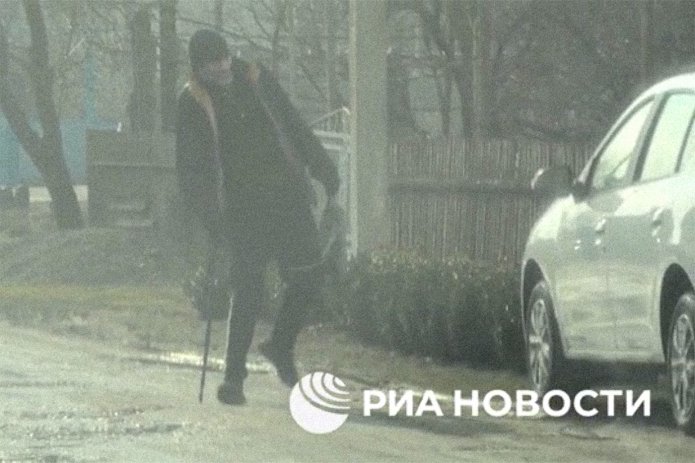
On 6 March, FSB agents killed a Belarusian citizen, Nikolai Alekseev, during an attempted arrest, alleging that he had been recruited by Ukrainian intelligence to carry out a terrorist attack. The incident took place in the city of Olonets in the Republic of Karelia (north-western Russia). The authorities intended to arrest Alekseev for alleged plotting of a terrorist attack. According to law enforcement officers, he was planning to bomb the city administration building in Olonets and resisted arrest by opening fire on law enforcement officers, leading to an «armed clash» in which he was «neutralised».
Nikolai Alekseev had previously participated in Belarus’ 2020 protests following the presidential election, where he opposed President Alexander Lukashenko and criticised him on social media. The circumstances under which Alekseev found himself in Russia are unclear. His son stated that Alekseev had been working a shift job.
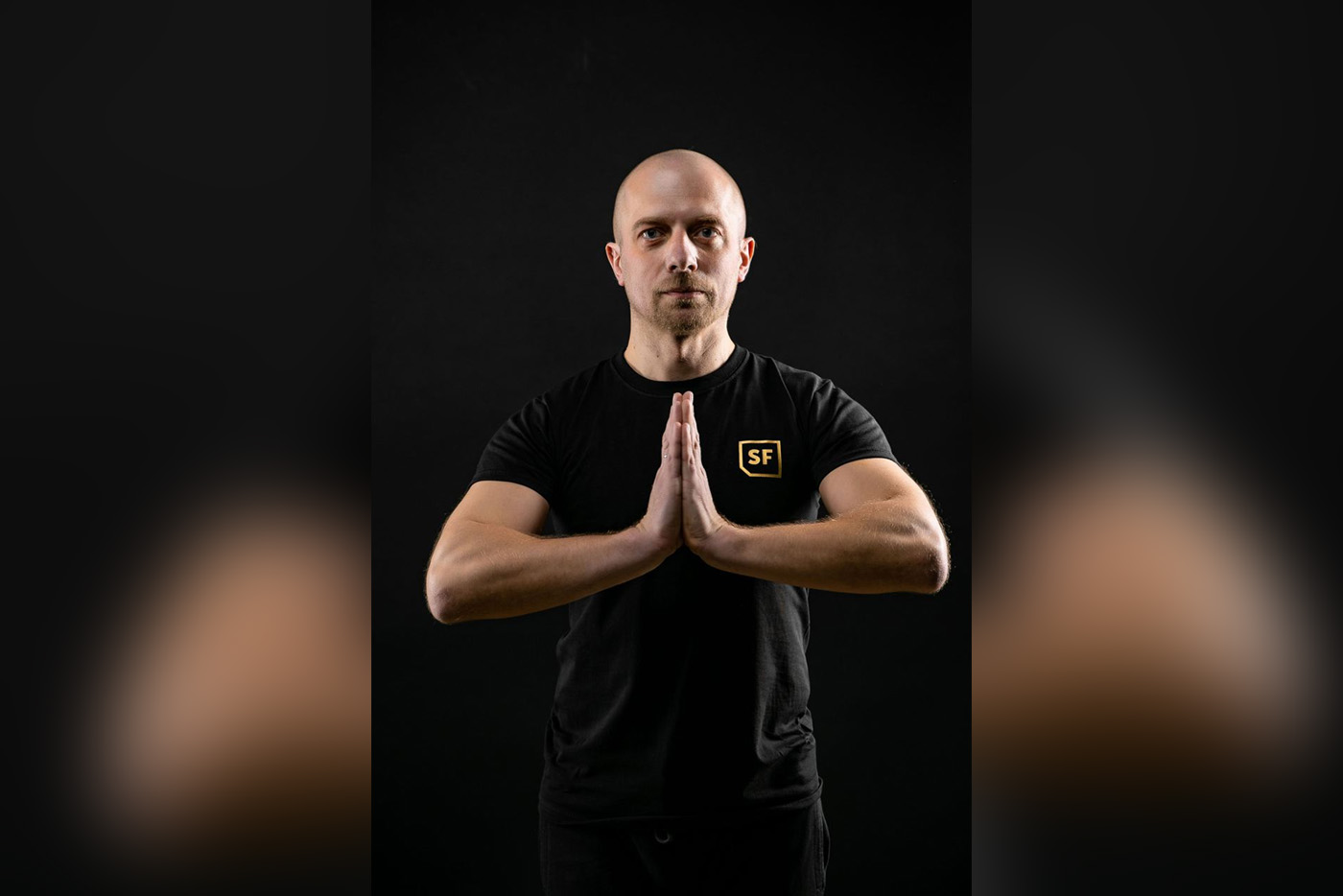
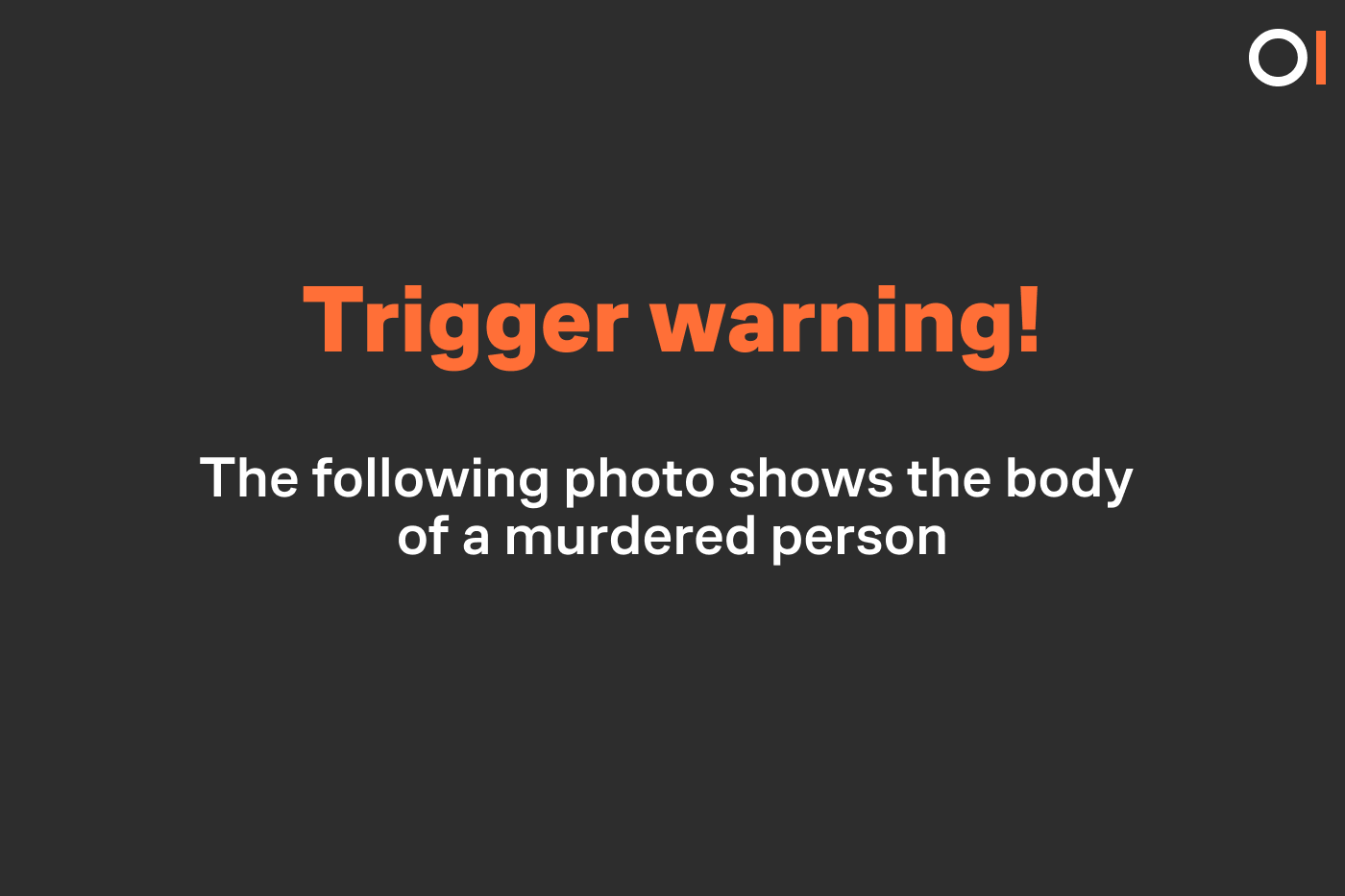
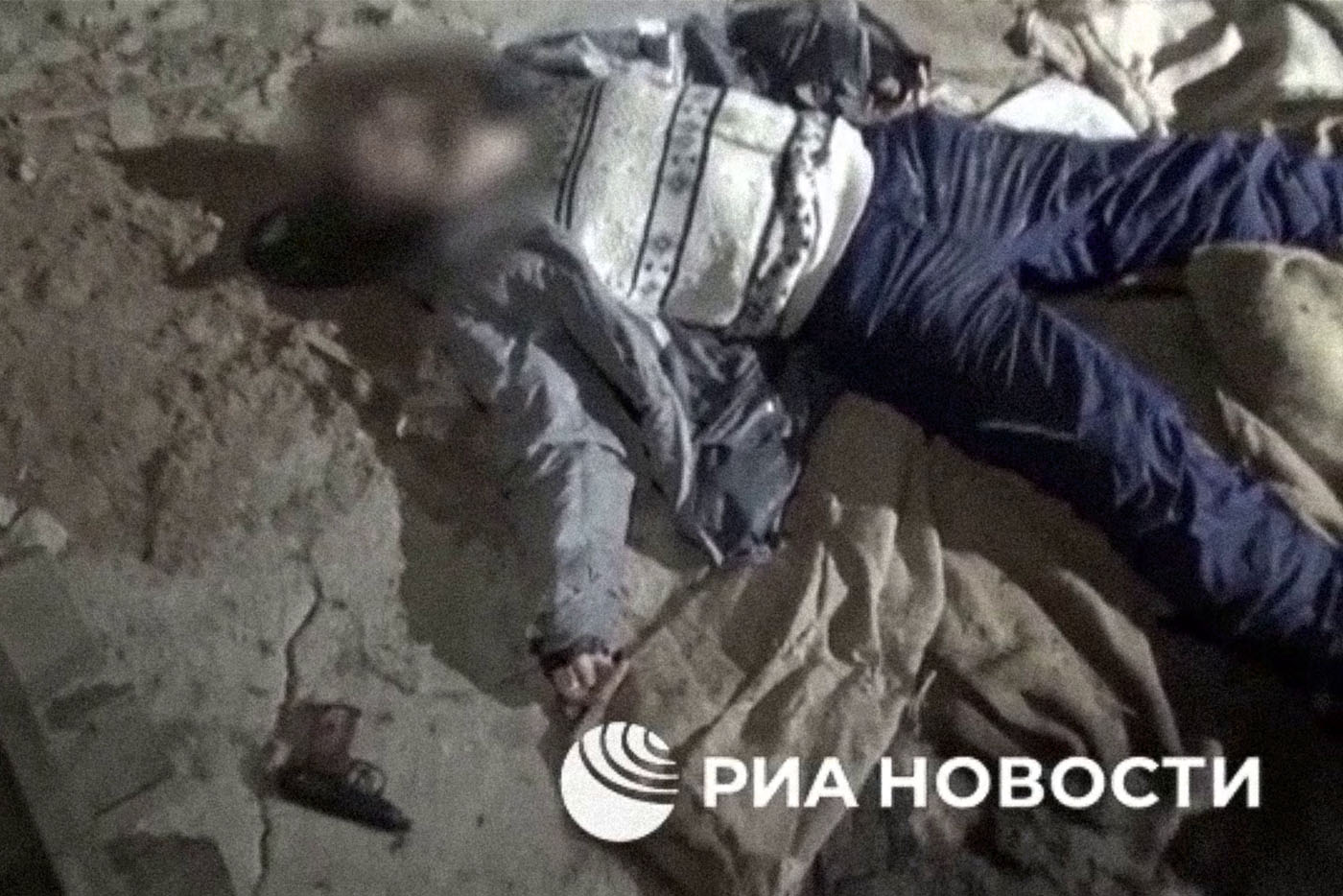
Another individual killed during an arrest was a 30-year-old activist Andrei Zhvakin from Samara (southern Russia near the border with Kazakhstan). He was known for his protests in support of political prisoners and opposition to the war. The authorities claim that Zhvakin was a supporter of the «Russian Volunteer Corps» (RDK) and, «under the guidance of Ukrainian intelligence», was planning to detonate a bomb at a «humanitarian aid distribution point run by one of the volunteer organisations».
In late March, the FSB reported that Zhvakin died after detonating an improvised explosive device during his arrest. Russia’s RIA Novosti published FSB footage in which an officer is heard shouting, «Hands up! He has something in his hands, something in his hands! Drop it!» followed by the sound of an explosion. The video then shows remnants of a human body in the snow and a search being conducted in an apartment.
On 8 October, Rosfinmonitoring added Zhvakin to its list of «terrorists and extremists», despite the fact that death is a reason for a person’s removal from the list.
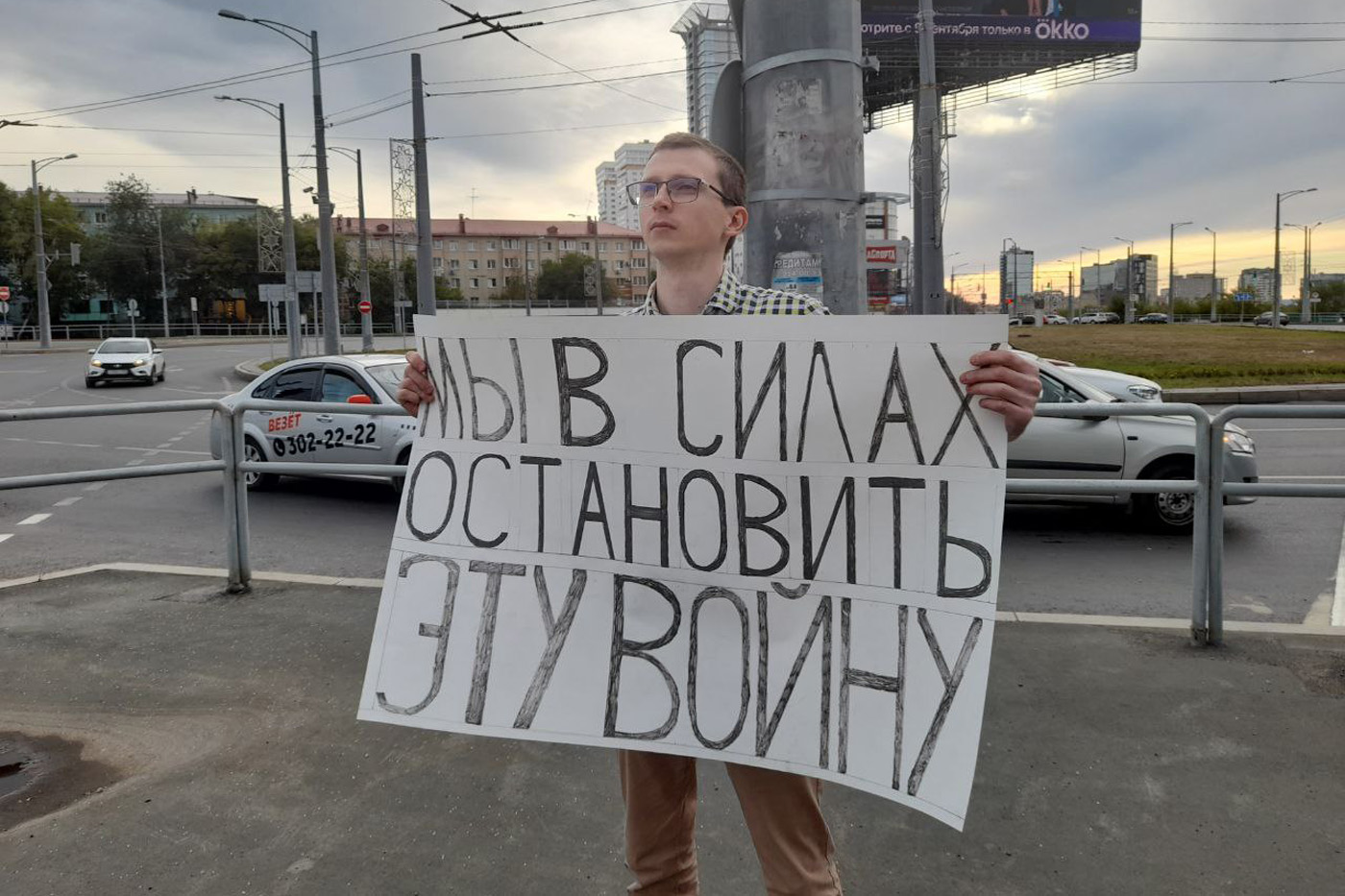
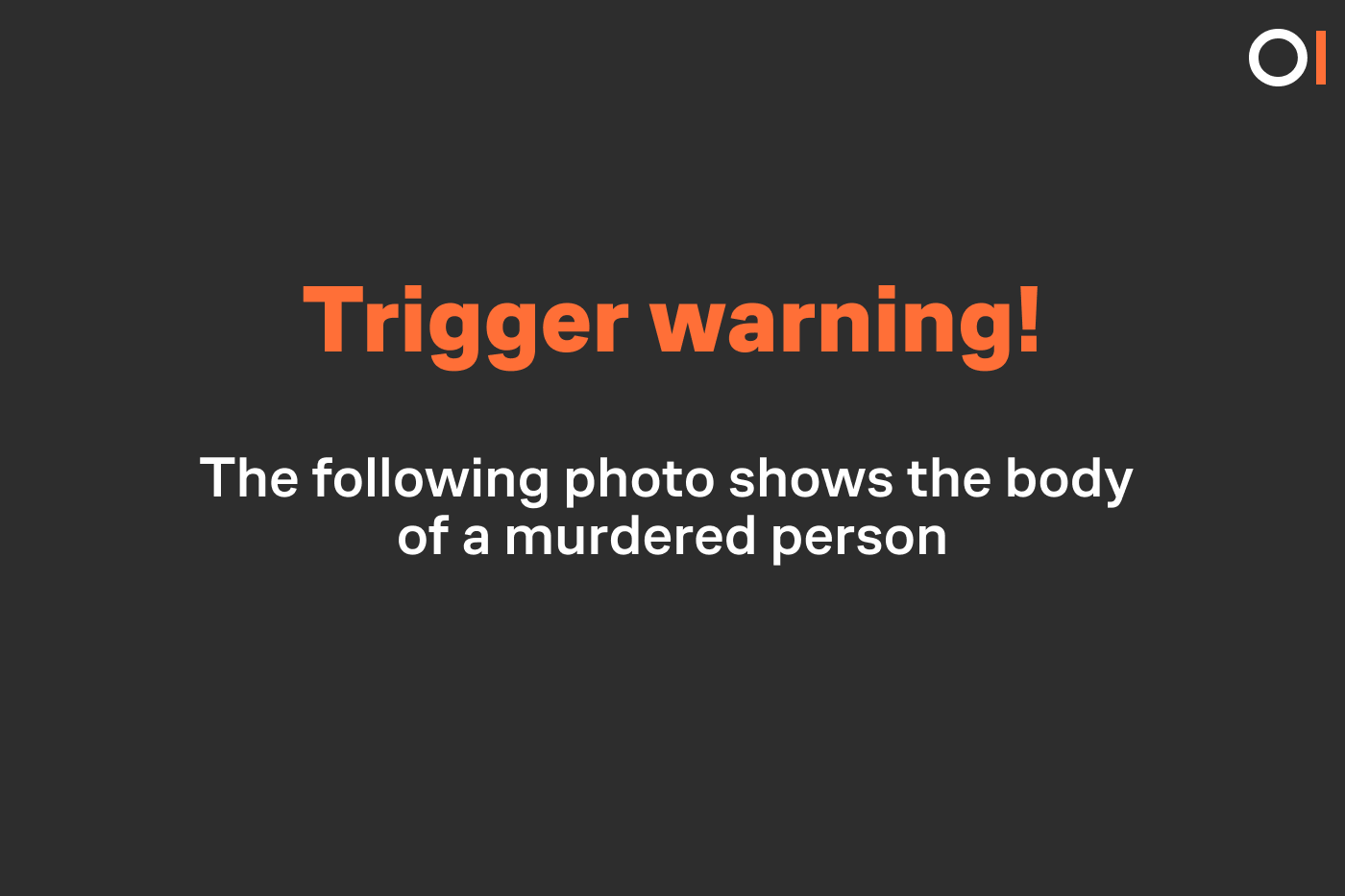
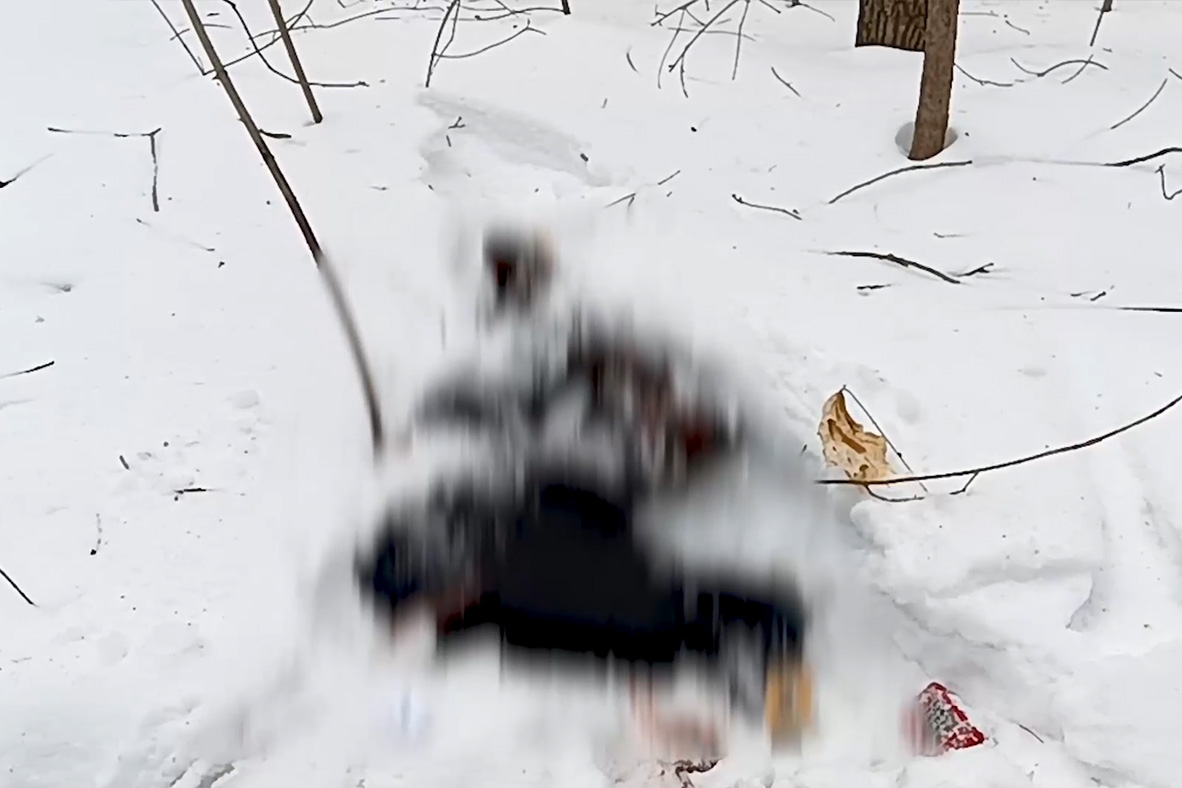
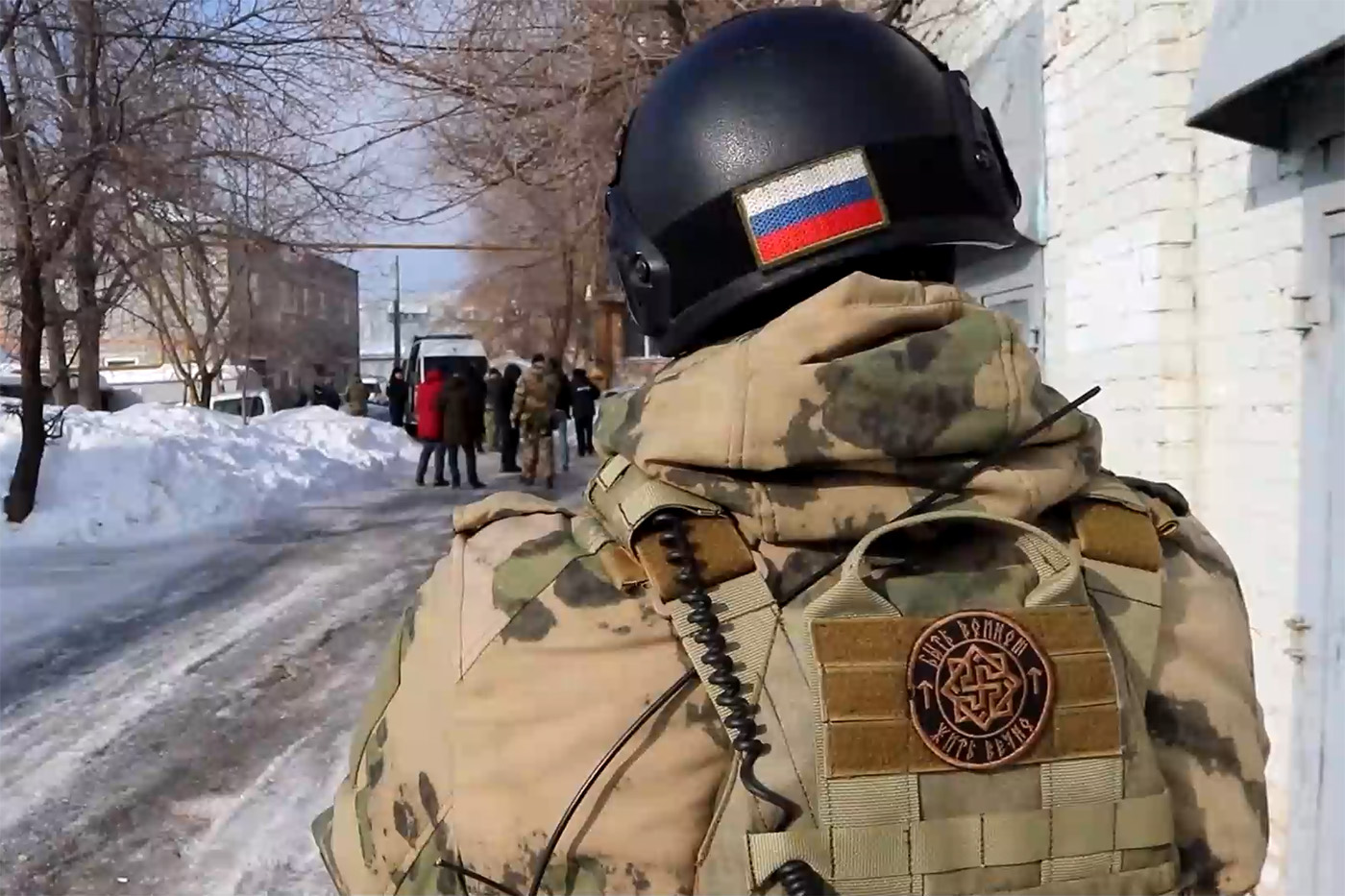
In May, the FSB reported the killing of a suspected Ukrainian military intelligence «agent», born in 1976, who allegedly flew from Lithuania to Russia to carry out attacks on military facilities. The FSB claimed that messages found on his phone revealed «correspondence with a handler, detailing alleged Ukrainian plans to commit terrorist acts in Orthodox churches and locations frequented by Russian speakers in the Baltic states».
The man allegedly resisted arrest. Pro-Kremlin Telegram channels identified him as 47-year-old Nikolai Surnov, who had been wanted since early April as an accomplice in a terrorist attack at Moscow’s Crocus City Hall.
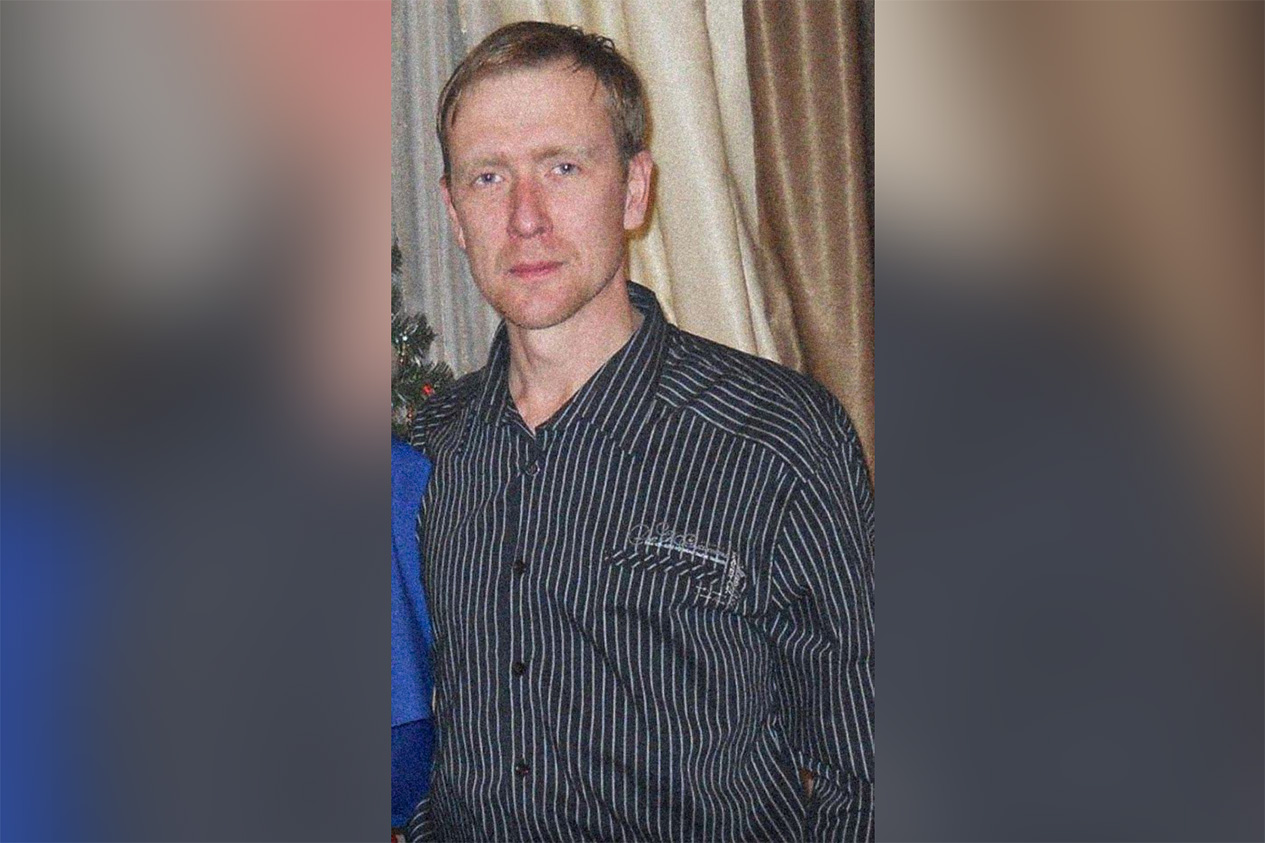
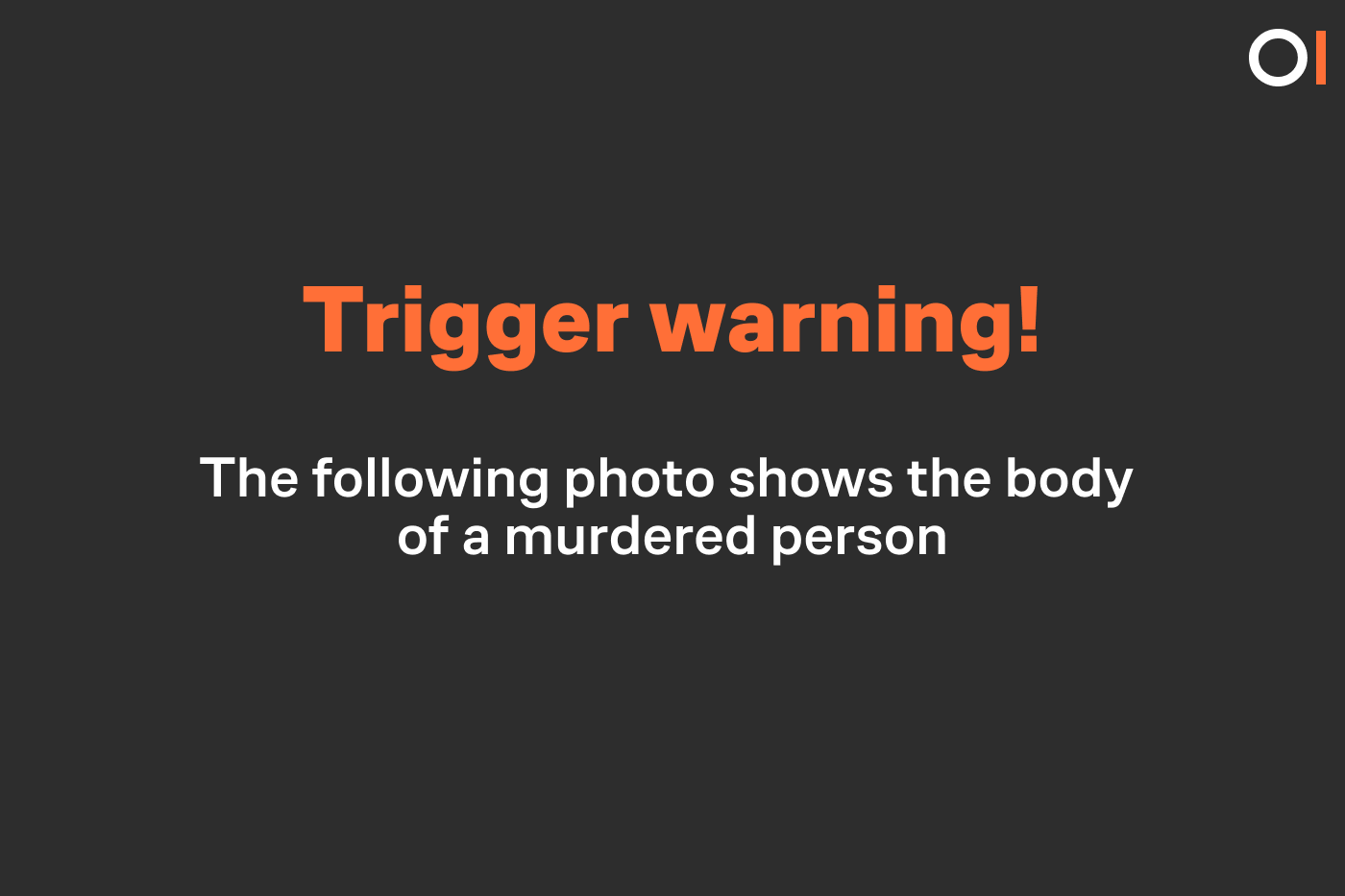
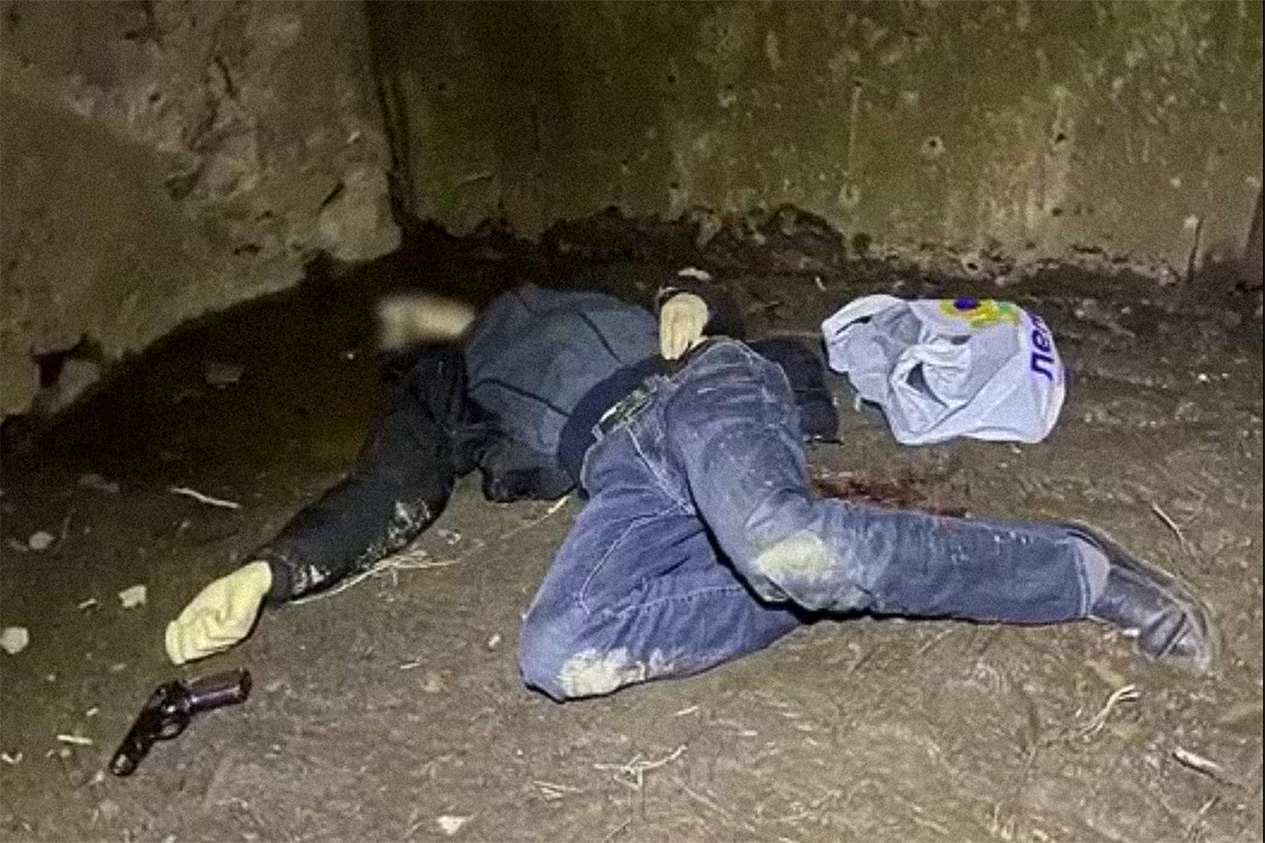
On 17 September, the FSB reported killing a man born in 1984, who was suspected of planning to bomb the car of a manager in the defence industry in Russia’s Sverdlovsk region. According to the officials, the man resisted arrest and was armed; law enforcement forces shot him dead in response.
The Authorities identified him as an alleged Ukrainian military intelligence agent and a member of a Ukrainian nationalist organisation banned in Russia. A criminal case was opened against him posthumously for illegal possession of explosives. The FSB stated that they found a Makarov pistol, a high-powered remote-controlled bomb, and communication devices at the scene, which they claim he used to contact Ukrainian intelligence.
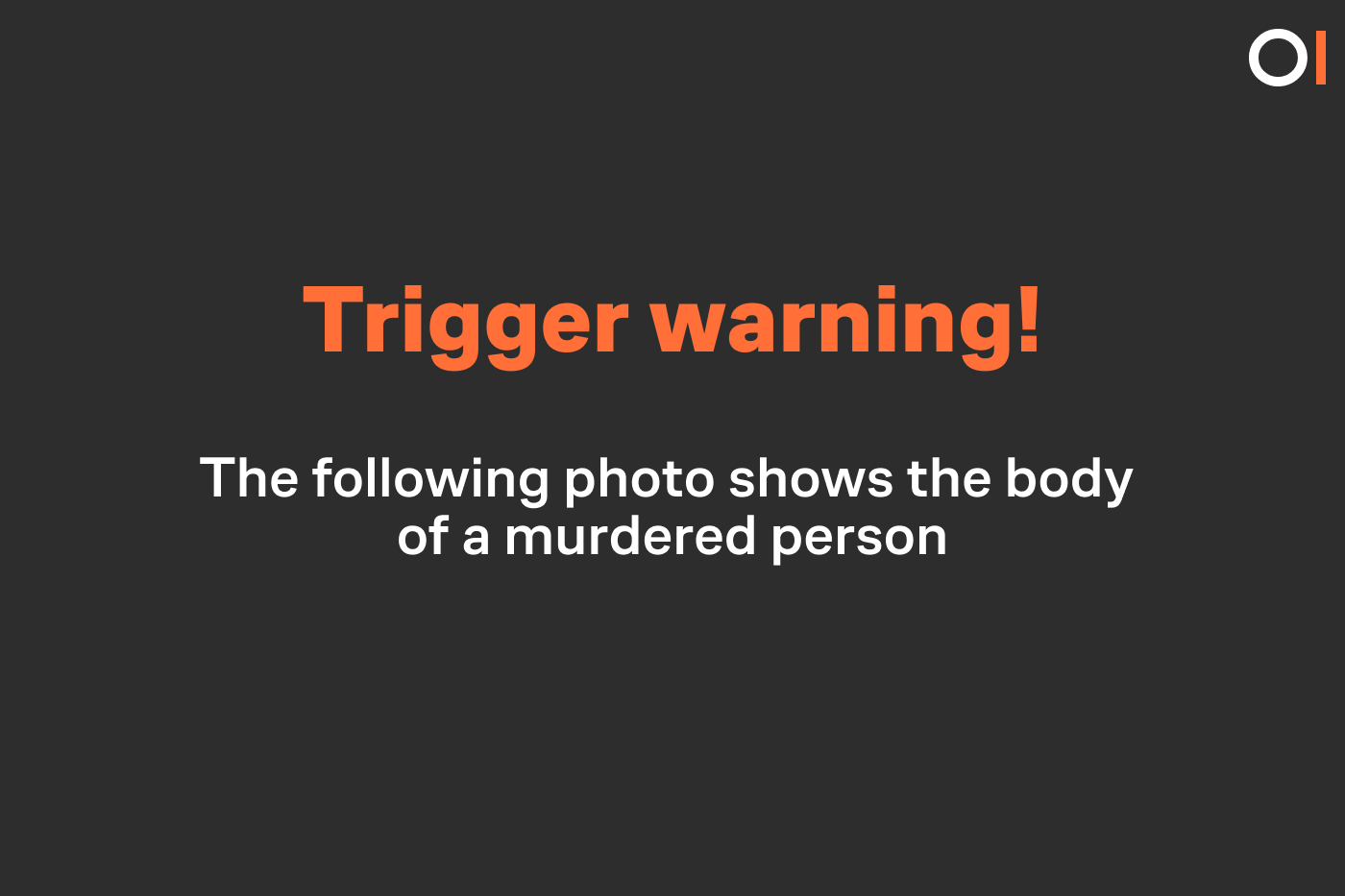
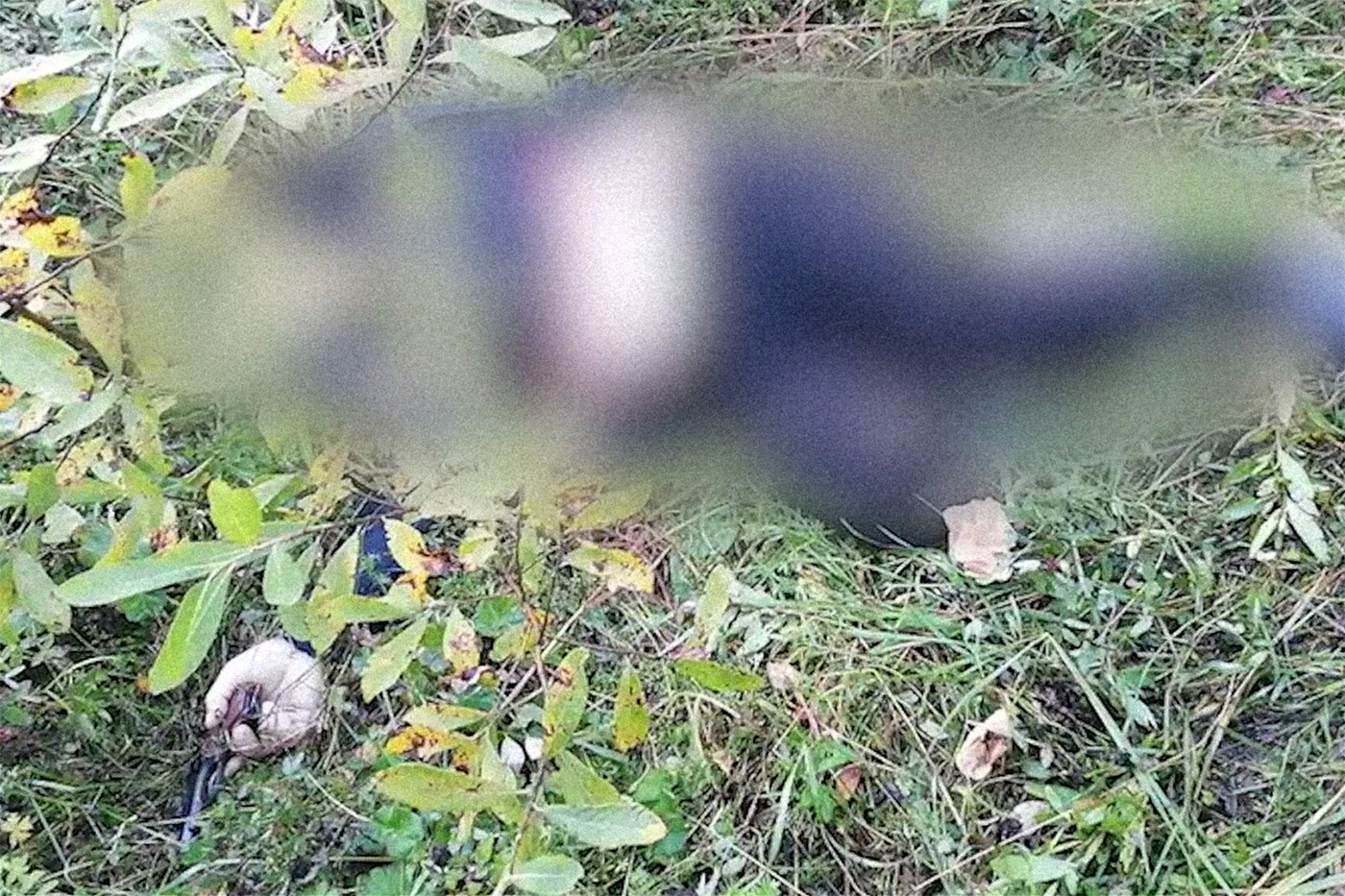
Deaths of the Defendants in the Baymak Case
This year, two defendants involved in the Baymak case were reported dead. The Baymak case is related to protests in Bashkortostan following the sentencing of activist Fail Alsynov.
One of the defendants, Rifat Dautov, died after his arrest on January 25. According to a family member, Dautov did not participate in the protests but was waiting for his girlfriend on Salavat Yulaev Square in Ufa, where a rally was taking place on January 19. His sister reported that he had stayed there for no more than 20 minutes. Shortly afterward, he was summoned to the police department and issued a warning that is typically given to «disturbers of peace».

On 25 January, in the village of Novye Chebenki, where Dautov came to visit the relatives of his girlfriend, he was detained and taken away in an unknown direction by people who introduced themselves as OMON (Russia’s special task police units) officers; they did not show any ID documents. The family learned about his disappearance when the head of the village council invited them to identify the body. When the relatives arrived at the morgue in Ufa, they were not allowed inside because they did not have an investigator with them, as the authorities told them.
The outlet «Moi Bashkortostan» («Мой Башкортостан») put forward a version that he had been poisoned with surrogate alcohol, quoting an anonymous source in law enforcement agencies. «While being transported to the court, Dautov started feeling sick on the bus. Police officers immediately called an ambulance, but he died before the arrival of the doctors, who could only state his death. According to the preliminary version, his death was caused by poisoning with surrogate alcohol. The final cause of death will be determined by a forensic examination, ” the media outlet reported.
Dautov’s sister, Zaliya, disputed this version of events, stating that her brother did not drink at all — a fact confirmed by others who knew him. In mid-October, an independent forensic examination suggested that Dautov may have been severely beaten prior to his death. The analysis indicated that the bruises on his legs were consistent with blows from a blunt, rigid object of a regular geometric shape, with a circular cross-section and a diameter of at least 3 cm. At least 48 impact marks were found on his body, covering no less than 30% of Dautov’s total body surface. «Based on the thickness of the haematomas, the volume of internal blood loss is estimated to be at least 5.19 litres, ” the expert reported.
On 13 February, another participant of the protests was buried in Bashkortostan. Minniyar Baiguskarov committed suicide after being beaten by law enforcement officers during interrogations. Salavat, the brother of the deceased, spoke about the beating. Activists added that after the beating Baiguskarov started having problems with his kidney and had trouble urinating.

«They beat him, beat him, beat him, drove him to Ufa. They beat him, beating his testimony out of him. Was he there? He was. Had he participated? He had. [He was] 65 years old, and they beat him just like that, ” said the brother of the deceased.
Other Deceased Political Prisoners
Alexei Navalny
On 16 February, the Federal Penitentiary Service of the Russian Federation reported the death of Alexei Navalny in the Polar Wolf colony in the town of Kharp. According to the report, the politician «started feeling sick after a walk», and the medical workers who arrived «immediately» could not do anything. In July, the Investigative Committee said that Navalny died as a result of a «combined disease» and refused to investigate his death.

The authorities refused to hand over the body to the politician’s mother Lyudmila Navalnaya under various pretexts. On 23 February, the investigator Vyrypayev issued an ultimatum: either his mother agreed to a secret funeral without a public farewell within three hours, or her son would be buried in the colony. Lyudmila Navalnaya refused to negotiate with the Investigative Committee and demanded compliance with the law, which obliges investigators to hand over the body within two days after determining the cause of death. On 24 February, Navalny’s body was finally handed over to his mother
The Insider media outlet, citing «hundreds of official documents related to the death of Alexei Navalny», reported that the politician complained about a sharp deterioration of his health: he began to feel sharp pain in the abdomen, started vomiting and having convulsions, after which he lost consciousness.
According to the media outlet, these symptoms were mentioned in one of the versions of the ruling on the refusal to initiate proceedings on Navalny’s death. These lines were missing from the final version of the document. At the same time, the inventory of objects seized after his death includes «samples of vomit masses» of the politician, which means that they were submitted for expert examination, although it was not officially reported.
«Such symptoms can hardly be explained by anything other than poisoning. The short interval between abdominal pain and convulsions suggests that it could be, for example, an organophosphorus substance (Novichok belongs to the same class of substances, but only if used externally, not internally), ” said Alexander Polupan, an intensive care doctor who treated Navalny after his Novichok poisoning in Omsk.
Alexander Demidenko
On 5 April, Belgorod volunteer Alexander Demidenko, known for assisting Ukrainian refugees, died in Pre-trial Detention Centre No. 3. He had been charged with illegal trafficking of explosive devices, and the day before his death, a second case was filed against him — this time on charges of treason.

According to the local office of the Russian Federal Penitentiary Service, Alexander Demidenko’s death was ruled a suicide, with officials claiming he had slit his wrists. He was reportedly found with a wound on his left forearm. However, Demidenko’s son, Oleg, expressed doubts about this version of events. He found it odd that his father, who frequently spoke about his thoughts and mental state, hadn’t hinted at any desire to end his life. Moreover, Demidenko, who often wrote poetry in the pre-trial detention centre, left no farewell note or any indication of suicidal intentions, which made Oleg question the official explanation.
Oleg also noted that his father was soon to be transferred to St. Petersburg in connection with his case of treason, and had even asked his family to prepare a package for him. «How likely is it that someone who requests socks and underwear would be planning to take his own life the next day?» he questioned, casting further doubt on the official story.
On 2 July, the Investigative Committee declined to open a criminal case regarding Demidenko’s death. Representatives of the agency asserted that Federal Penitentiary Service officers had committed no unlawful actions against the volunteer. However, they refused to disclose when Demidenko’s body was discovered. Additionally, journalists’ questions about the cause of the abrasions and bruises on his face went unanswered.
Igor Pokuskin
On 11 June, the 61-year-old public activist born in Odessa Igor Pokusin died in Abakan’s pre-trial detention centre. He was sentenced to more than eight years in prison on charges of attempting to join the AFU. The man was initially charged over an anti-war sign and vandalising a Z-banner. He was detained when trying to leave Russia. Later, he said that FSB officers took him to the forest, tortured him and forced him to confess that he was going to join the Ukrainian army.

In reality, Igor had serious health issues: «His hip and knee joints had been replaced, he had a metal structure in his ankle and a stent in his heart.» He was unable not only to fight, but also left his job as a civil aviation pilot because of his health. The case includes wiretaps of his phone conversations with friends, where in March 2022 he emotionally discussed how he would like to help Ukraine.
Alexandr Perov
The 54-year-old St. Petersburg resident Alexander Perov, charged with terrorism for burning down a military recruitment office on Tchaikovsky Street, died on 11 June at the Mariinsky Hospital, where he had been taken the day before from the pre-trial detention centre in a state of clinical death. According to Fontanka, the doctors were unable to help him.

According to the investigation, on the night of 31 July, Perov tried to set fire to the military recruitment office on Tchaikovsky Street; he was detained at the burned door. He claimed that he had been persuaded to set the fire by an interlocutor in a messenger who had introduced himself as «FSB officer Kolesnikov». Perov was taken into custody and was charged under the article on terrorism.
Kirill Buzmakov
On 20 July, Kirill Buzmakov, a defendant in an anti-war case, died at home in Zheleznovodsk (the Stavropol region). He was one of the participants of a Telegram chat of bikers, who were charged with preparing a terrorist attack.

Buzmakov’s facial bone was broken during his arrest in the autumn of 2022, and he was not provided any medical care for a year and a half. In order to hide the traces of torture, the man was not taken to the hospital and was promised medical treatment if he gave the necessary testimony. He did not receive any medical treatment, all that time the injury was inflamed and he assumed that had developed a malignant tumour. «In the initial stage it was easy to cure. But I, you see, was ignored. They denied me treatment for more than a year, they did not even do histology with biopsy, ” he wrote to another defendant in the case, Vladimir Burmay, who managed to leave Russia. As late as in May 2024 Buzmakov, who was already in a very severe condition, was transferred to house arrest. On May 28, he was operated on in a civil hospital.
Olexandr Ishchenko
On 22 July, the 55-year-old Azov Brigade fighter held captive Olexandr Ishchenko died in Pre-Trial Detention Centre No. 5 in Rostov-on-Don. The man had served as a driver in the Azov Brigade. In the spring of 2022, he fell into Russian captivity, and then, along with 23 other Azov fighters became a defendant in a criminal case. Ishchenko was charged with forcible seizure of power in the «Donetsk People’s Republic» (DPR) and participation in the activities of a terrorist organisation.
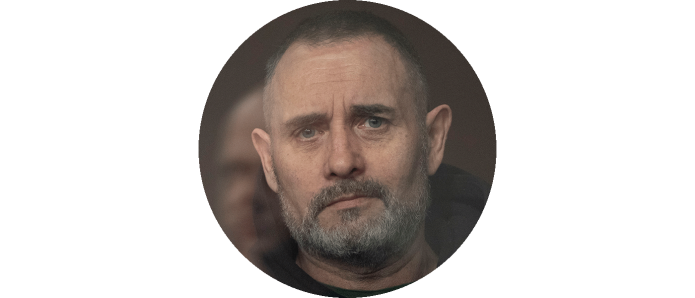
The medical certificate of his death states that «the cause of death has not been established due to putrefactive changes in the corpse’s organs and tissues». At the same time, on 7 August, Azov’s deputy commander Svyatoslav Palamar published the conclusion of a Ukrainian medical examiner. It said that the cause of Ishchenko’s death was shock, multiple rib fractures and a closed blunt trauma to the chest, which he received as a result of «contact with a blunt object».
Pavel Kushnir
On 27 July, the 39-year-old pianist and anti-war activist Pavel Kushnir, charged with public justification of terrorism for videos on his YouTube channel with five subscribers, where he posted anti-fascist manifestos, died in Birobidzhan’s pre-trial detention centre after a dry hunger strike. Prior to his arrest, Kushnir had worked for the philharmonic society, published an anti-war book and run a YouTube channel.

The official cause of Pavel Kushnir’s death was identified as «dilated cardiomyopathy, congestive heart failure», Mediazona found out. The pianist was on hunger strike since the first day of his arrest in late May and later refused to drink water. According to Mediazona’s source, the staff of the pre-trial detention centre gave the man drips with glucose and vitamins, but it turned out to be not enough.
Victoria Roshchyna
On 19 September, the 27-year-old Ukrainian journalist Victoria Roshchyna, who was detained by Russian law enforcement officers in the occupied part of the Zaporizhzhya region in August 2023, died during her transfer to Moscow. It was not reported what status the girl had had and whether she had been prosecuted under any criminal article.

Suspilne media outlet found that Roschina was on the list for one of future prisoner-of-war exchanges. According to Andrei Yusov, the spokesman for Ukraine’s GUR, «she was supposed to be home soon». «According to the latest information, she was transported to Lefortovo in order to prepare her for her return home, ” he added.
The executive director of the Media Initiative for Human Rights Tetyana Katrychenko said that the journalist had been detained in Corrective Colony No. 77 in the occupied Berdyansk and Pre-Trial Detention Center No. 2 in Taganrog in the Rostov region. According to her information, both correctional facilities have held both Ukrainian soldiers and civilians since the beginning of the war. In Berdyansk, they are tortured with electric shocks. Ukrainian prisoners call Taganrog’s Pre-Trial Detention Centre No. 2 a «hell on Earth».
On 18 October, Russia and Ukraine exchanged the bodies of the victims, but Roschina’s body was never handed over to Ukraine.



